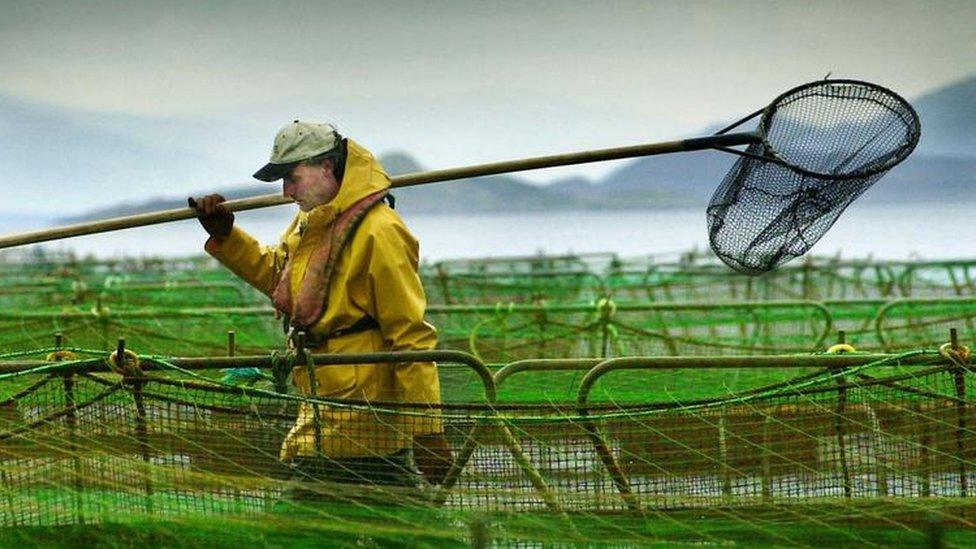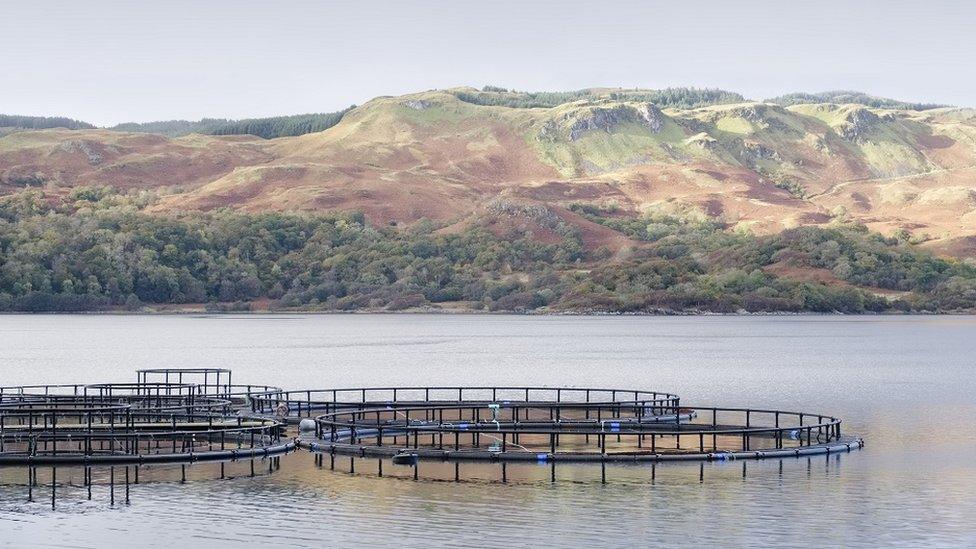Salmon farming 'pays £100m in British taxes'
- Published

The salmon farming industry claims to contribute more than £100m in British taxes, although it is controlled by parent companies in Norway.
The industry's trade body commissioned independent economic research into salmon farming's economic impact, partly to face down criticism of it.
The study found turnover of more than £1bn.
The amount of gross value added - a measure of the output from the sector - was £365m at last year's prices.
The impact of the turnover spent through wages and taxes, and the indirect impact on spending through other sectors in Scotland, is thought to take the total impact to double that of revenue, at more than £2bn.
Richard Marsh, author of the study at 4-consulting, reckoned that the scale of the sector's impact through the economy, including its tax contribution, is higher than most other sectors of the economy.
Much of the spending by the industry takes place in Scotland, and it is a big investor in capital goods. This year, a major new fish feed production plant is to be opened at Kyleakin on Skye.

The corporation tax contribution for last year is thought to have been £50m, and £24m was paid to HMRC through income tax and national insurance. A further £37m was directly paid, net, on production and products.
Richard Marsh calculated that £76m was paid in wages. The average pay for its 2,300 employees in 2018 was £34,000.
A more detailed study published in 2017, and commissioned by Highlands and Islands Enterprise, found a higher level of value added, though it covers a wider range of aquaculture. The Scottish Salmon Producers Association (SSPO) does not see the way of compiling figures as being comparable.
The SSPO's Hamish Macdonell said: "An overall economic impact of more than £2bn represents a major benefit to the Scottish economy in itself but with average salaries of £34,000 for the 2,300 people directly employed, the sector is injecting extremely valuable resources into some of Scotland's most fragile, sparsely populated, rural areas as well."